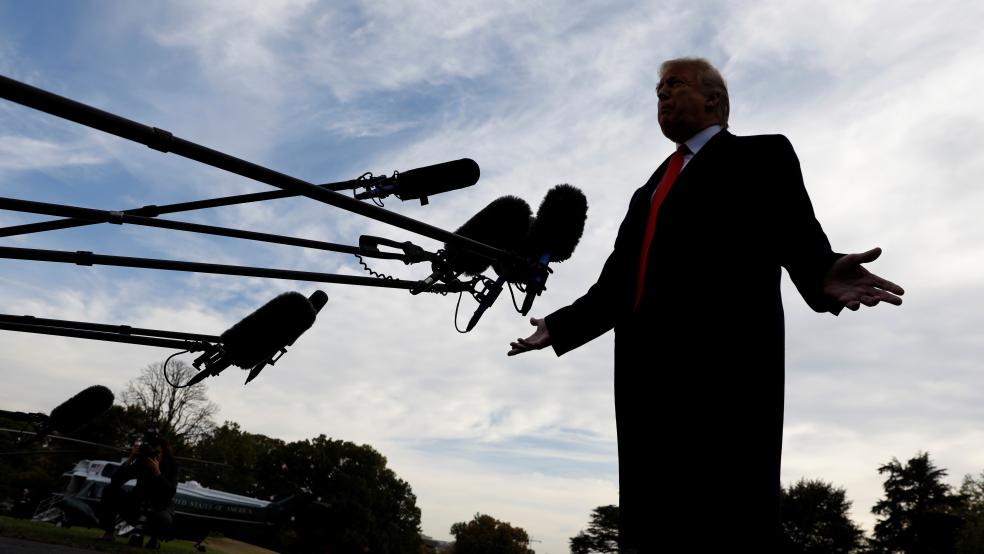In a somewhat surprising statement on fiscal policy, President Trump said Wednesday that the U.S. will start reducing its more than $21 trillion national debt. "We're going to start paying down debt, we have a lot of debt," Trump said at the White House during a discussion about the economy.
The president provided no further details on how or when the debt reduction payments would begin.
Commenting on Trump’s “rare mention” of the issue, Mark Knoller of CBS News pointed out that the Trump administration has expanded the debt so far, tweeting, “Latest Debt posting is $21.697-trillion. On the day he took office, it was $19.947-trillion.”
Tyler Evilsizer of the fiscally conservative Committee for a Responsible Federal Budget pointed out that paying down the debt would first require a budget surplus – “a HUGE shift for federal policy, especially if it were done over the short-term (in the rest of Trump's term).” Evilsizer highlighted just how big a challenge it would be given current fiscal condition: “The deficit next year is projected to be $973 billion (per CBO), or $1,085 (if the President's Budget is enacted). Balancing the budget next year would require a 22-24% cut in spending, or a 28-32% increase in revenue. That'd be a huge change to happen over one or two years”
In the end, Trump’s declaration of intent stands a good chance of fading into the mists of time. Daniel Dale of the Toronto Star compared Trump’s comments to his earlier announcement of a tax cut for the middle class, tweeting, “Trump adds imaginary debt repayment to his imaginary tax cuts.”




